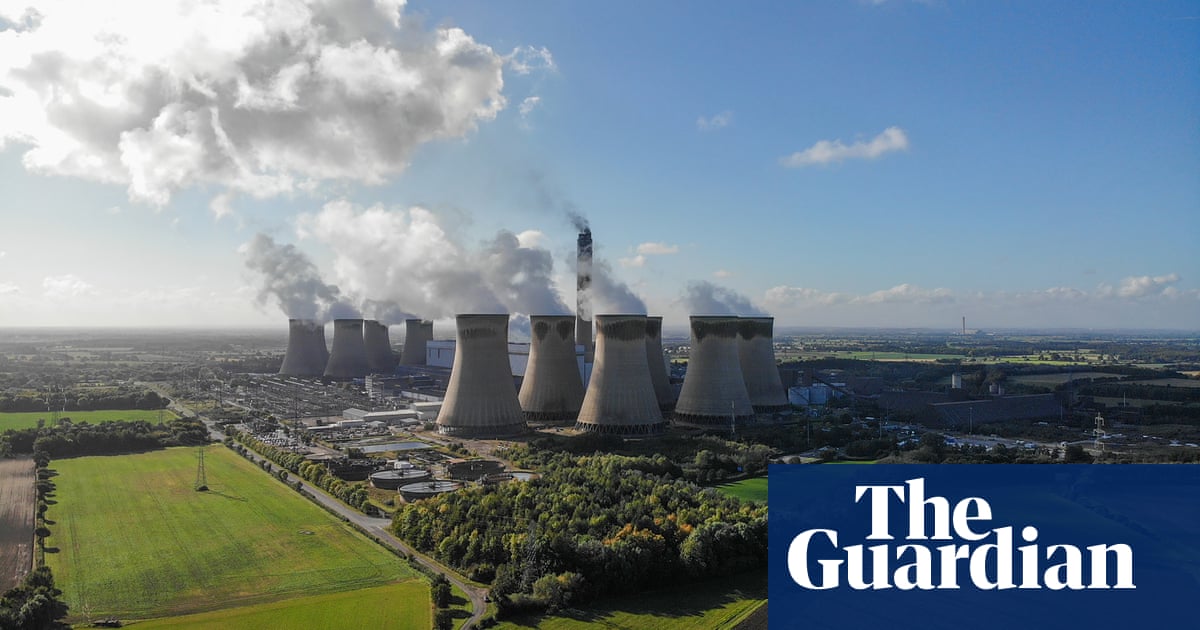
The importing of wood to burn in Drax power station “is not sustainable” and “doesn’t make any sense”, the business and energy secretary, Kwasi Kwarteng, told a private meeting of MPs this week.
The remarks are significant as the burning of biomass to produce energy is an important part of the UK government’s net zero strategy and has received £5.6bn in subsidies from energy bill payers over the last decade. Scientists and campaigners have long argued that burning wood to produce electricity is far from green and can even increase the CO2 emissions driving the climate crisis.
In a recording of the meeting obtained by the Guardian, Kwarteng also admitted “we haven’t actually questioned some of the [sustainability] premises of it”. He said the government’s advisers, the Climate Change Committee, had said biomass was a necessary part of climate action in the UK.
But Kwarteng added: “I can well see a point where we just draw the line and say: This isn’t working, this doesn’t help carbon emission reduction, that’s it – we should end it. All I’m saying is that we haven’t quite reached that point yet.” Drax’s share price fell 10% in early trading on Wednesday, wiping about £280m off the value of the company.
About 80% of the wood pellets burned by Drax come from North America. Kwarteng said: “There’s no point getting it from Louisiana – that isn’t sustainable … transporting these wood pellets halfway across the world – that doesn’t make any sense to me at all.” Since 2019, when Kwarteng became an energy minister, Drax has received £2.5bn in subsidies for its power station, which previously burned coal.
Advertisement
The subsidies are due to end in 2027, but Drax is hoping to gain new subsidies by adding carbon capture technology to its plant. This would mean the CO2 taken from the atmosphere when the trees grew would end up buried underground, potentially reducing CO2 levels. This process accounts for about three-quarters of the “negative emissions” that the government’s net zero strategy says the UK must capture.
The European Academies Science Advisory Council said last year that burning wood in power stations was “not effective in mitigating climate change and may even increase the risk of dangerous climate change”. Environmental campaigners also say harvesting the wood damages forests.
One MP at the meeting told Kwarteng: “It can take 100 years to grow a tree but 100 seconds to combust it. So, unless we actually have a measure of how much CO2 is being released in the same period of time as is being sequestered by new growth, it seems to me ludicrous to say that this is carbon neutral.” Another MP said: “It’s cutting down huge numbers of forests and it’s not defensible.”
A government official also told the MPs that moving to UK-sourced biomass would not necessarily guarantee sustainability. They said: “Just because they’re sourced domestically doesn’t mean they will be less carbon intensive.”
A government spokesperson said: “[Kwarteng] has always been clear biomass has a key role to play in boosting Britain’s energy security, having supplied enough reliable renewable electricity to keep the lights on for 4 million households. The more homegrown power like biomass we generate at home, the less exposed we’ll be to volatile gas prices pushing up bills.
“The UK government only supports biomass which complies with our strict sustainability criteria and will shortly publish our biomass strategy, which will further detail our position on its future use,” the spokesperson said.
The government launched a consultation on Wednesday on potential business models to pay for a first biomass burning plant fitted with carbon capture. In contrast to his comments to MPs, Kwarteng said on launching the consultation: “The government is fully behind biomass energy to provide more power in Britain.”
Drax did not respond to a request for comment on Kwarteng’s remarks to MPs. On the consultation, the chief executive of Drax, Will Gardiner, said: “The government is paving the way for the UK to lead the world in deploying vital carbon removal technologies like bioenergy with carbon capture and storage. [This technology] is vital to energy security and net zero because it can produce reliable renewable power whilst also permanently removing CO2 from the atmosphere – no other technology does both.”












